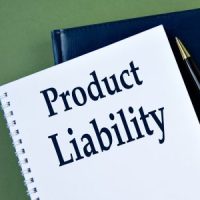What Is Alabama’s “Innocent Seller” Statute?

Product liability is a legal term that refers to the potential liability of all the parties in the chain of possession of a defective product. Most of these cases are decided in the U.S. on a theory of strict liability – in other words, if a product is found to be dangerous, the manufacturer is then liable as a matter of law. Alabama handles product liability somewhat differently, and as a result, some parties in the chain of possession may not be held liable under state law.
If you have been injured by a defective product, it is a good idea to consult an attorney who can advise you as to your best legal options. The Birmingham product liability attorneys at Goldasich, Vick & Fulk have handled these cases before, and will work hard to bring yours to a fair conclusion.
No Strict Liability
Unlike most of its neighbors, Alabama handles product liability cases in a similar manner as any other case where negligence may be involved. It has adopted a law known as the Alabama Extended Manufacturers’ Liability Doctrine (AEMLD). The AEMLD holds that a defendant will be held liable for injuries stemming from a product if they manufacture, design, or sell an “unreasonably dangerous product” that reaches consumers “substantially unaltered.”
State case law clarifies further, stating that even if a product is ‘properly’ manufactured, if it is deemed inherently dangerous when used as intended, liability will fall on the manufacturer for any injuries that result. Sellers may sometimes be shielded from liability under Alabama’s so-called “innocent seller” doctrine, but it is important to remember that this does not always apply.
Sellers Are Protected If They Are ‘Innocent’
Under the legal theory of strict liability, a seller of a defective product would be just as liable as its manufacturer if the product harms a consumer. Since Alabama does not use the strict liability doctrine, the “innocent seller” doctrine arose to describe sellers who played no part whatsoever in the design or manufacture of the product they sold. These sellers may be immune from suit – but if a seller is also a distributor, or if they played a more active role in bringing the product to market, the doctrine will not apply to them.
That said, it is sometimes possible to file suit against a seller even when this provision is in force. The relevant statute states that if an injured plaintiff has exercised all possible due diligence in trying to find the manufacturer of a defective product, but has been unable to find them, they may bring suit against a seller or distributor, so that someone may answer for the harm they have suffered.
Get Your Questions Answered – Call Us Today
If you have been injured by a defective product, you deserve to be compensated for what you have been through – but it is not always easy to recover money damages. The Birmingham product liability attorneys from Goldasich, Vick & Fulk can help answer any questions you may have about the process. Call our office today to schedule a consultation.



